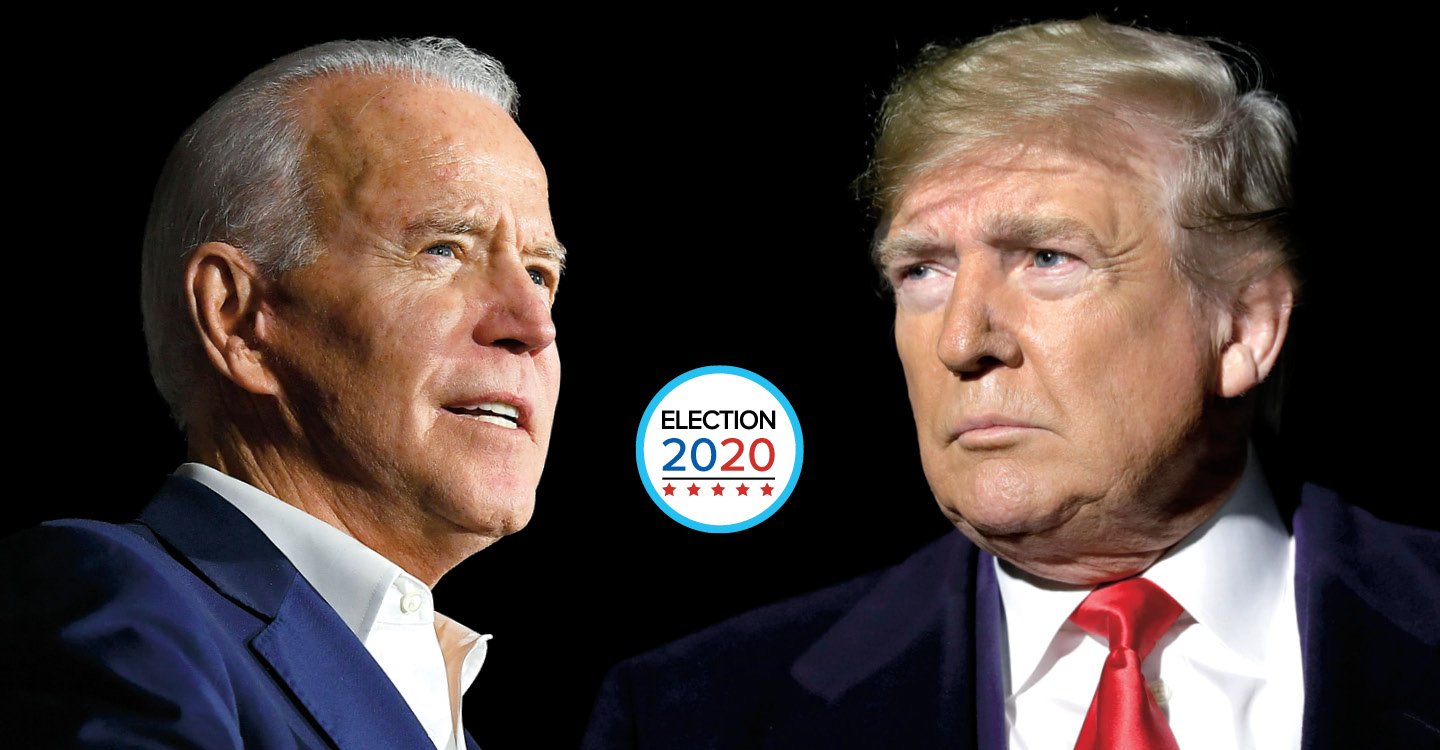It’s a moment without precedent in American history. A deadly virus that has killed more than 150,000 people in the U.S. alone has turned life upside down, thrown millions of Americans out of work, and left the worst economic devastation since the Great Depression. On top of that, a vast outpouring of anger and despair nationwide over the killing of a Black man in police custody last spring has led to the most massive social protest movement in at least half a century.
This is the environment in which Americans will cast ballots in the November presidential election to decide who will lead the nation during the next four years: Republican Donald Trump or Democrat Joe Biden.
“Every four years, we hear people say this is the most important election of our lifetime. Normally, it isn’t true. This time it is,” says Larry Sabato, director of the Center for Politics at the University of Virginia. “The stakes are enormous, and the two pathways could not be more different.”
President Trump came to the Oval Office promising to use his experience as a businessman to disrupt business as usual in Washington and “make America great again.” In an effort to boost the economy, he’s overseen a massive rollback of environmental and other government regulations. He has cracked down on illegal immigration and reduced the number of immigrants legally entering the country. And he’s disrupted relations with America’s longtime allies with his “America first” approach to foreign policy.
We’re living in a moment that’s unlike any other time in American history. A deadly virus that has killed more than 150,000 people in the U.S. alone has turned life upside down. It’s thrown millions of Americans out of work. And we’re experiencing the worst economic devastation since the Great Depression. On top of that, there’s been a huge outpouring of anger and despair nationwide over the killing of a Black man in police custody last spring. In fact, it’s led to the most massive social protest movement in at least half a century.
This is the environment in which Americans will cast ballots in the November presidential election. Their votes will decide who will lead the nation during the next four years: Republican Donald Trump or Democrat Joe Biden.
“Every four years, we hear people say this is the most important election of our lifetime. Normally, it isn’t true. This time it is,” says Larry Sabato, director of the Center for Politics at the University of Virginia. “The stakes are enormous, and the two pathways could not be more different.”
President Trump came to the Oval Office promising to use his experience as a businessman to disrupt business as usual in Washington. He said that he would help “make America great again.” He’s launched a massive rollback of environmental and other government regulations, trying to boost the economy. He has cracked down on illegal immigration and reduced the number of immigrants legally entering the country. And he’s harmed relations with America’s longtime allies with his “America first” approach to foreign policy.

